Sudan Conflict Monitor # 14

30 June, 2024
The Sudan Conflict Monitor is a rapid response to the war in Sudan written through a peacebuilding, human rights, and justice lens, reflecting on the most important stories in the country. Please share it widely.
Powered by Ayin, Human Rights Hub, and the Sudan Transparency and Policy Tracker
In this issue:
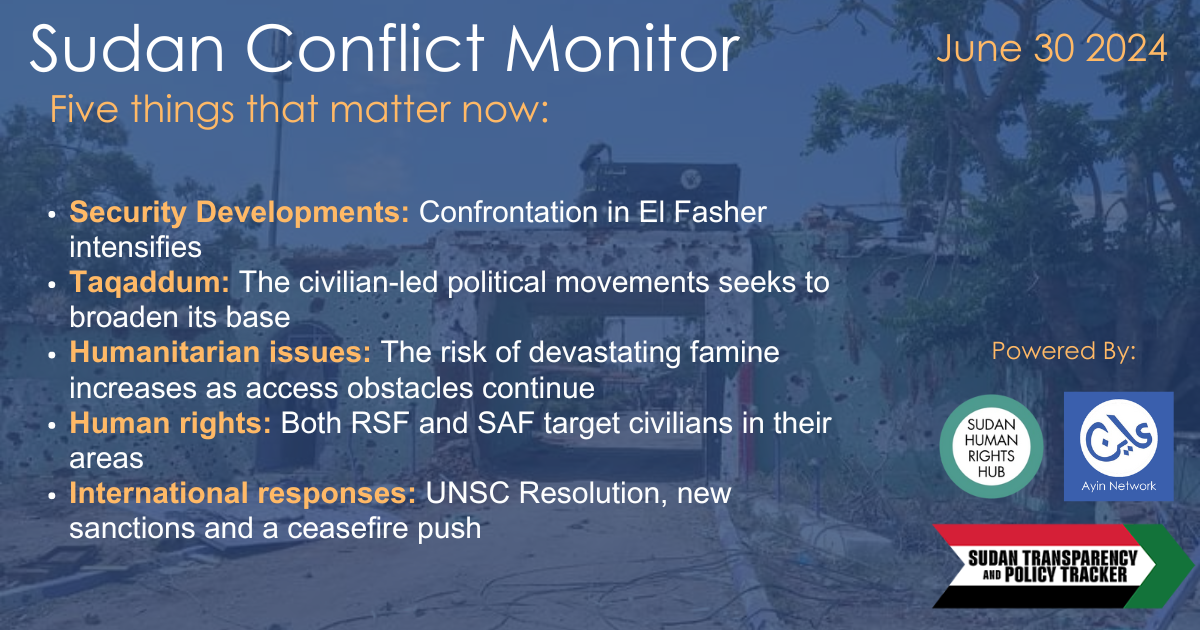
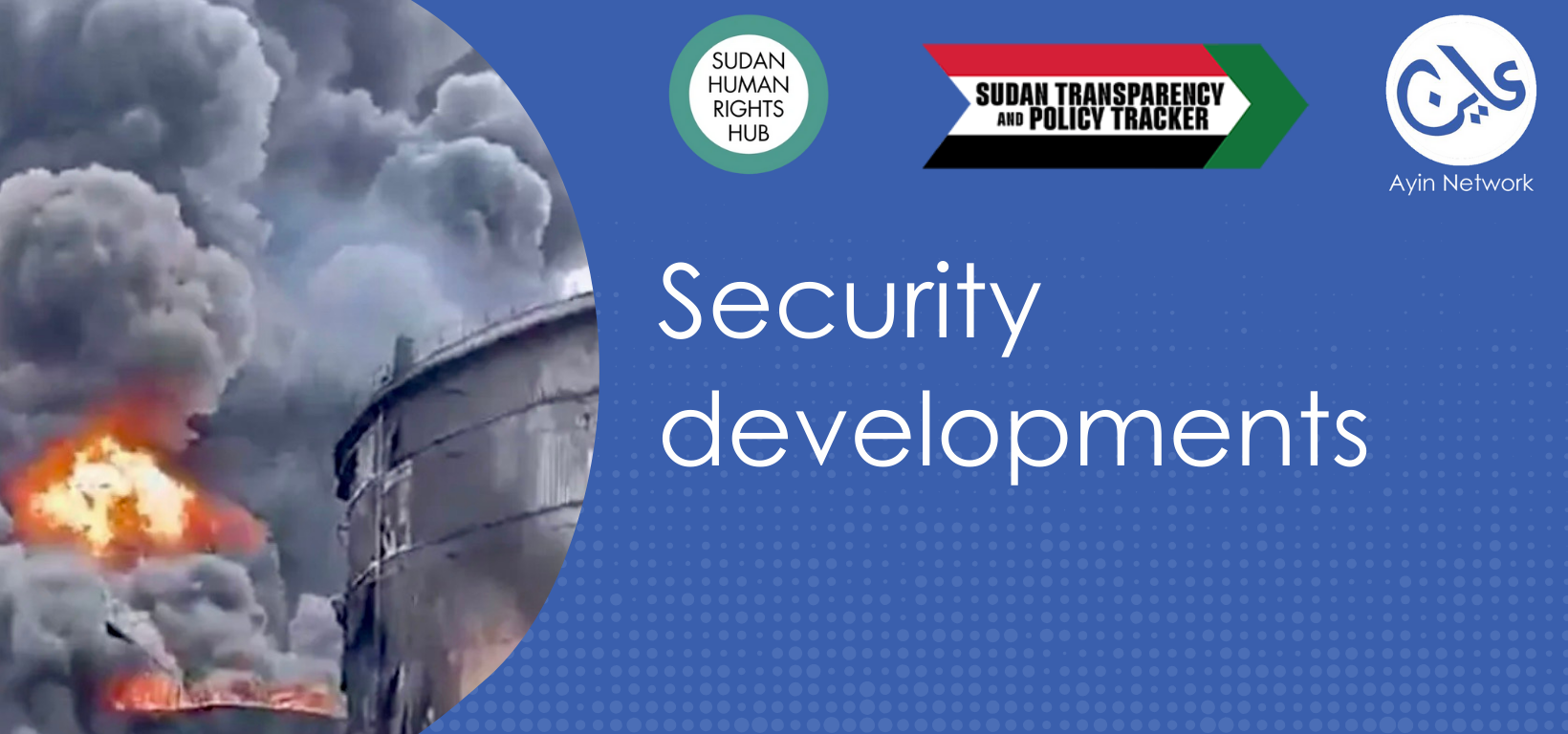 1. Security Developments: Confrontation in El Fasher intensifies
1. Security Developments: Confrontation in El Fasher intensifies
The past month’s conflict developments have focused around El Fasher, where RSF sources claim they have staged as many as 28,000 soldiers and aligned militias—alongside heavy weapons, drones, and special forces trained in urban combat and with sniper rifles—in a full siege of SAF, Juba Peace Agreement (JPA) armed groups, and popularly mobilised civilians defending the city. While RSF has made incremental progress in neighbourhoods on the outskirts of the city, SAF sources remain confident of their defensive positions and note that RSF has yet to strike a decisive blow. On May 28th, Juba Peace Agreement (JPA) groups rejected attempts by RSF commander Ali Rizikillah “al-Safana” to take control of the Golo Dam, which is reportedly home to 80% of the city’s water supply. On June 14, RSF suffered the loss of its Central Darfur Area Commander Ali Yacoub Jibril following an ambush under unclear circumstances in the middle of El Fasher City, very close to the SAF 6th Division Headquarters. While a short-term tactical success for SAF and the JPA groups—in part because they reportedly captured vital intelligence information from his vehicle—his death appears to have emboldened RSF to exact revenge on the ground.
Coordination issues continue to be a problem for SAF, JPA groups, and civilian defenders, which have only worsened over the past month due to supply shortages. RSF’s control of major roads leading into the city has led SAF to re-supply via at least 5–6 airdrops between April and June. Yet, ground sources note that the joint operations room managed by SAF and JPA leadership, located close to the 6th Division Artillery HQ in the center of the city, has been unable to respond substantially to requests for additional ammunition, food, and medical supplies from frontline units. Ground sources have also heard complaints from lightly armed civilian defenders about the sudden withdrawals of SAF and JPA support units. The JPA units were afraid that the RSF would take their valuable heavy weapons and armoured vehicles. Discussions between SAF and JPA groups regarding a potential relief force for El Fasher’s defenders have begun to emerge, possibly drawing upon hundreds of SAF and JPA vehicles staging between al-Daba, Northern Sudan; al-Mthalath in the triage area (a cross-border area between Sudan, Libya, and Egypt), and in JPA (Juba Peace Agreement signatories) camps spread throughout the western localities of North Darfur.
The fighting in El Fasher continues to escalate the risk of Arab-Zaghawa ethnic conflict, spurred by social media hate speech and exploited by the belligerent factions as a key motivation for recruitment. Zaghawa militias and JPA armed groups, primarily under the command of SLM-Minni Minnawi and Chief of Staff Faisal Saleh, who returned from Libya to Umbaro locality, with over a hundred vehicles in early May 2024, have mounted an offensive on El Zurug, North Darfur, a home area of the Abbala-Riziegat tribe. The RSF maintains two logistics bases and a series of camps in the area and has further brought two commanders responsible for supply routes from Libya – Abdallah Chagab and Fadil al-Nagy—to rally forces in defence. RSF has also threatened to attack Zaghawa home areas in Wadi Hawar, Um Baru, and Kornoi in retaliation.
RSF’s commitment to El Fasher fighting has started to open space for SAF progress along other frontlines across Sudan, with incremental gains continuing to be made in Omdurman and along the al-Manaqil axis into Jazeera state. RSF has continued to launch assaults on Babanusa, West Kordofan, and the Armoured Division’s HQ in Shajara, southwest Khartoum, but notably suffered heavy losses around the latter position in mid-June 2024.
RSF’s command and control problems continue to show in Jazeera State, with piecemeal actions by individual commanders such as Abderahman al-Bishi and his close affiliate, Abu Shottal, as well as increasingly frequent attacks against civilian villages such as the June 5 attack on Wad al-Noura. According to members of the Wad Medani Resistance Committee, the paramilitary force bombarded the village using heavy weapons from multiple directions, killing 160 civilians and inducing thousands to flee the area, many relocating to al-Douiem City in White Nile State. The RSF claimed in a statement that they were targeting three separate army units, comprised of regular army units along with military intelligence and the Islamic militia, Al-Zubair Ibn Al-Awam. Both the army and civilians, however, deny this, insist there was no military presence in the area, and accuse the RSF-aligned forces of using this excuse to loot the town.
Since taking control of Al-Jazeera State’s capital, Wad Medani, last December, the RSF have targeted multiple villages within the state. Last month, on May 21, the RSF stormed the al-Takina area, killing 18 civilians. There were multiple, often repeated raids on villages in Jazeera State in February, according to local sources. One of the deadliest took place on February 19 in the Al Maghariba area, where the RSF killed six civilians. Just a few days prior to the attack on Wad al Noura, the RSF targeted the villages of Umm Douima and Al-Hasahisa, killing three civilians. The army did not intervene despite having a presence roughly four kilometres away, local sources told Ayin.
War By Attrition:
A string of recent battlefront successes may indicate that the RSF is deploying a new strategy of war of attrition against the SAF to draw concentration of its forces thin by swift offensives on isolated and poorly defended towns and withdrawing before the SAF could mount significant ground forces to counterattack. The new strategy would increase the SAF reliance on air strikes to dislodge the RSF from towns it took, increasing the risks of civilian losses in the crossfire of the war. This represents a significant change from the RSF offensives at the beginning of the war, during which the Forces used large concentrations of troops and gunfire to overrun SAF’s city garrisons and divisional headquarters. While effective, such attacks resulted in high numbers of RSF casualties.
Al Fula
On June 20, the RSF took control of Al Fula, the capital of West Kordofan State, diverting its attention from Babanusa to take the city. This was the first major RSF advance in several months. The fall of Al Fula leaves Babanusa as the only government stronghold in the region, which is an important crossroads. The attack was prompted in part by a visit to Port Sudan by some Misseiriya dignitaries who pledged allegiance to the SAF, prompting concerns in the RSF that their action might energize the SAF’s attempts to create divisions among one of its largest constituencies, the Misseiriya people of West and South Kordofan states. The attack demonstrated the RSF’s ability to launch a major offensive without drawing forces encircling Babanusa, El-Fasher, and El-Obeid. As noted by Khalid Ismaeil, the takeover also places the RSF in control of the major oil fields of Baleila and Abu Jabra, as well as large pipeline stretches crossing West Kordofan, the region’s rich livestock production and trade, and the long border with South Sudan and Darfur states, thus securing the RSF forces in Kordofan and Central Sudan strategic supply lines, including with South Sudan, Chad, and the CAR.
The development displaced significant numbers, with a volunteer from the Al Fula Emergency Room saying that 60% of the city’s population fled following the takeover, adding to the deepening humanitarian crisis in the region. Al-Fula was also a shelter for 1,618 displaced men and women coming from Babanusa, including 324 children and 714 women, the Babanusa Emergency Room said in a statement. In a typical response, SAF’s Air Force bombed Al-Fula on June 20 after it fell to the RSF, causing dozens of civilian casualties and destroying several public buildings, including the state’s legislature.
While the RSF garnered further control of Sudan’s oil fields in West Kordofan State, the Al Jaili Oil Refinery, based 70 kilometres north of the capital and also under RSF control, came under attack. On June 20, shells hit the refinery, with both warring parties denying responsibility. The former Undersecretary of the Ministry of Energy and Oil, Hamid Suleiman Hamed, believes that these sites are considered a “vital energy complex” nationwide, and the Khartoum refinery alone has an estimated asset value of $1.5 billion. A source from the Oil Sector Workers Association based near the refinery says roughly 30% of the facility has been destroyed in the war.
Sennar
On 24 June, the RSF carried out an attack near Sennar City, the largest in the state of the same name, attacking behind SAF front lines and creating panic in the city. The attack appears to have been more of a raid than a full-on assault intended to capture territory, but nonetheless shows the weakness of the frontlines. Despite the SAF sending reinforcements from Blue Nile State to maintain control of the capital city, hundreds of residents left on June 25, fearing an RSF takeover. The RSF is in control of the nearby Jebel Moya area, where a major agricultural project and grain stores are kept, according to local humanitarian worker Nahla Hassan. Controlling over this area will deprive many of them of access to much-needed food supplies, Hassan added and it will place RSF in a better position to take over Sennar.
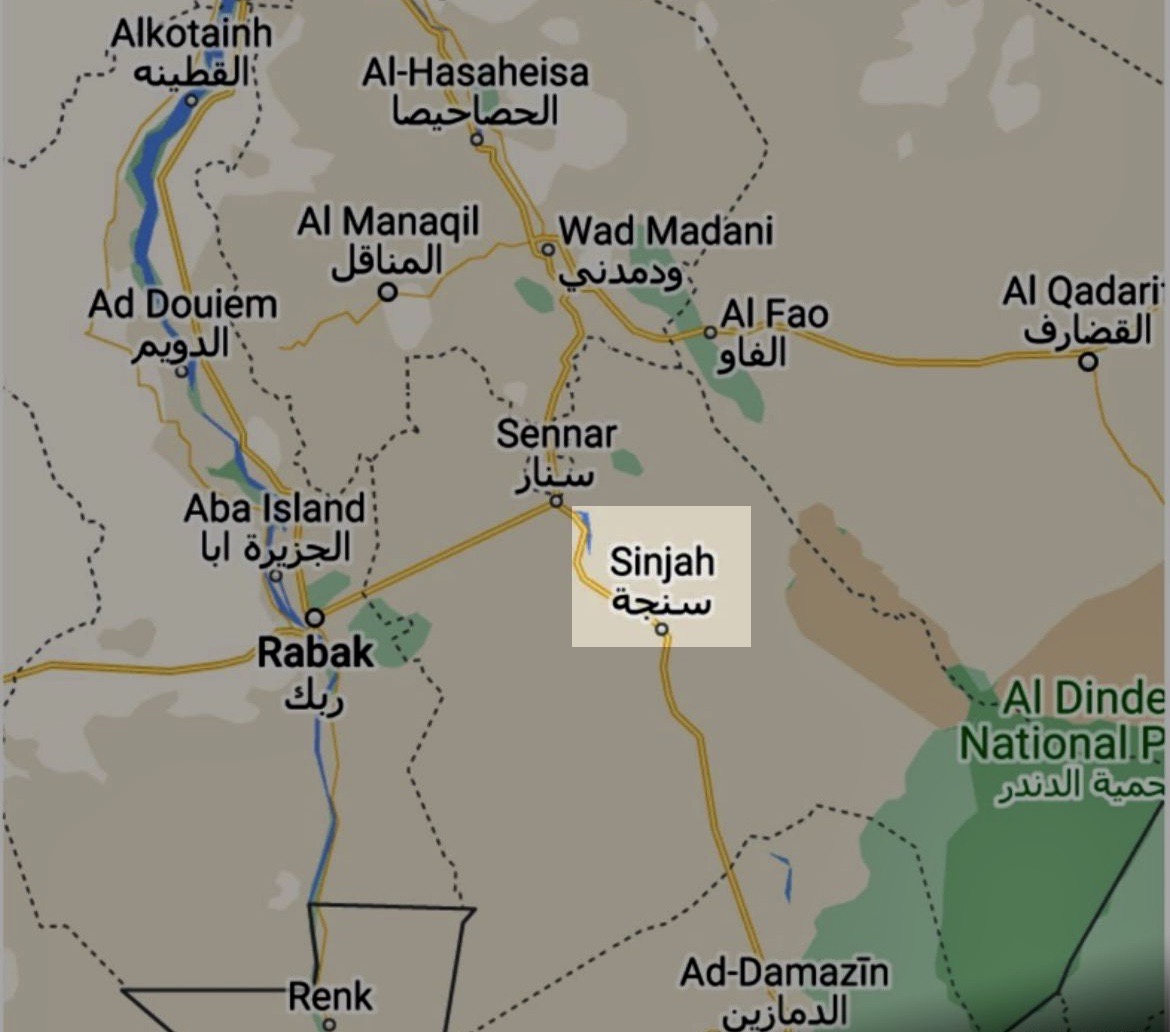 Sinjah
Sinjah
On 29 June, a column of RSF technicals raided the town of Sinjah, the capital of Sennar State, and easily took control of the SAF’s 17th Infantry Division. According to audio messages the locals sent during the attack, the division was left exposed as the Military Intelligence team had travelled to Sennar the day before to secure the visit of Lt.-Gen. Burhan. The army had reinforced Sennar after an RSF incursion, which, in hindsight, appeared intended to divert SAF’s attention from their real target, Sinjah. Indeed, SAF had reinforced the defences of Sennar following the RSF takeover of Jebel Moya days before. As of 29 June evening, RSF forces have begun widespread looting of the city, including vehicles, with further expectation of targeting civilian infrastructure and institutions. The fall of Sinjah is also expected to have severe humanitarian consequences, with potential future disruption of large-scale agricultural schemes located in nearby areas such as Blue Nile, White Nile, and Jazeera states.
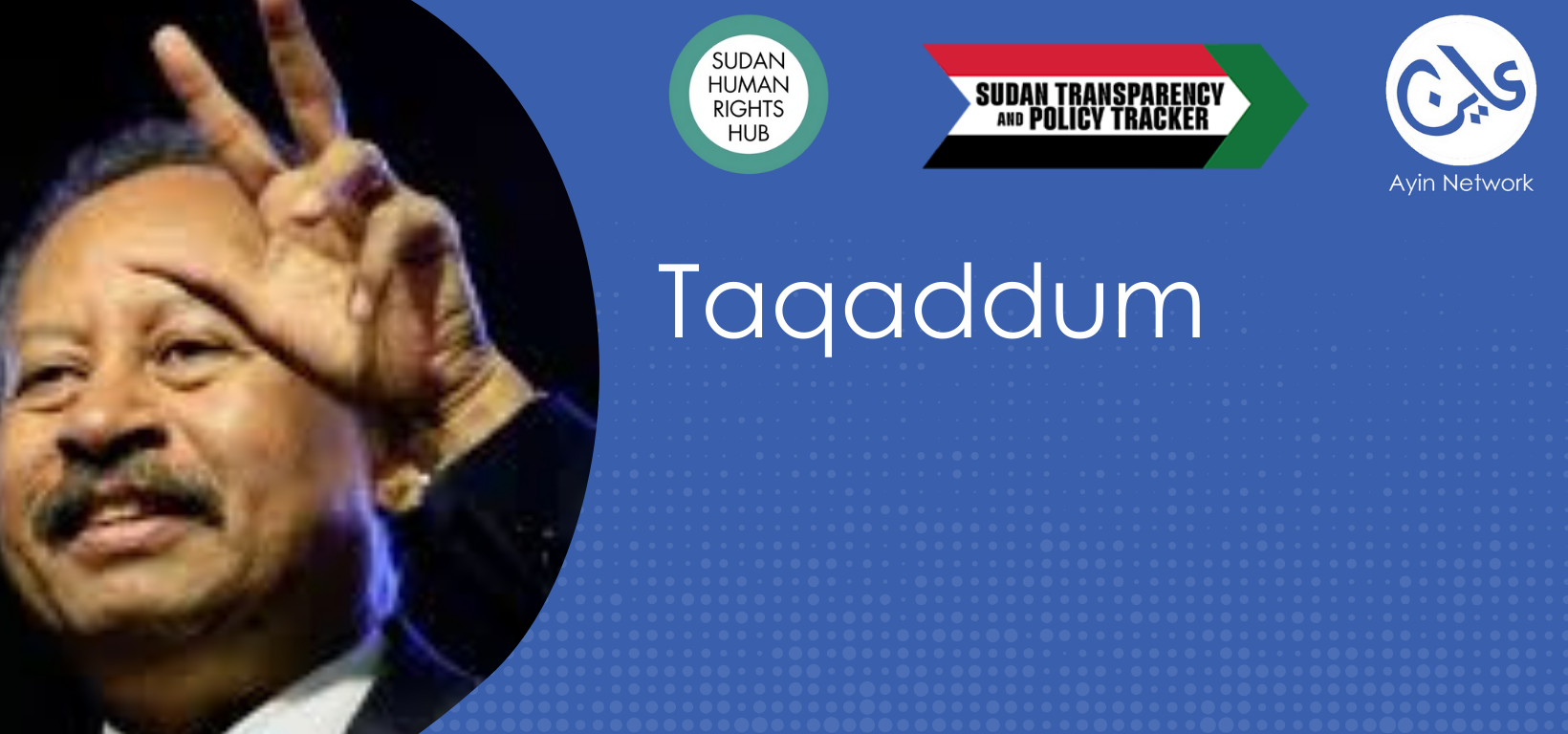 2. Taqaddum seeks to broaden its base
2. Taqaddum seeks to broaden its base
In late May, the leaders of the Taqaddum civilian coalition gathered about 600 delegates to broaden the coalition and make it a stronger and more credible voice for civilians. Participants reflected Taqaddum’s effort to respect the imperatives of the 3 G’s: gender, generational, and geographic representation. A new leadership structure was announced, which allowed for more open leadership. FFC leaders took a notably less pronounced role in the new leadership structures, indicating an effort to open doors to ensure better inclusivity.
The leadership has also tried to reach out to other centres of power, in particular the Sudan People’s Liberation Movement-North, to draw them into a broader coalition. The movement joined the May conference as an observer but said that its longer-term engagement would depend on upcoming developments.
In addition, the group publicly denounced RSF human rights abuses in June 2024. This move would appear to be an effort to distance the movement from the RSF, which some perceive it to be too close to.
However, it remains to be seen both how credible the larger effort is with the larger Sudanese civilian community and how it will fit into larger mediation efforts. Prominent SPLM-N political activist Yasir Arman welcomed the conference but said that additional outreach was needed to bring the initiative up to a critical mass.
Despite its organisational and policy achievements at its foundational convention, Taqaddum faces significant challenges in several critical areas.
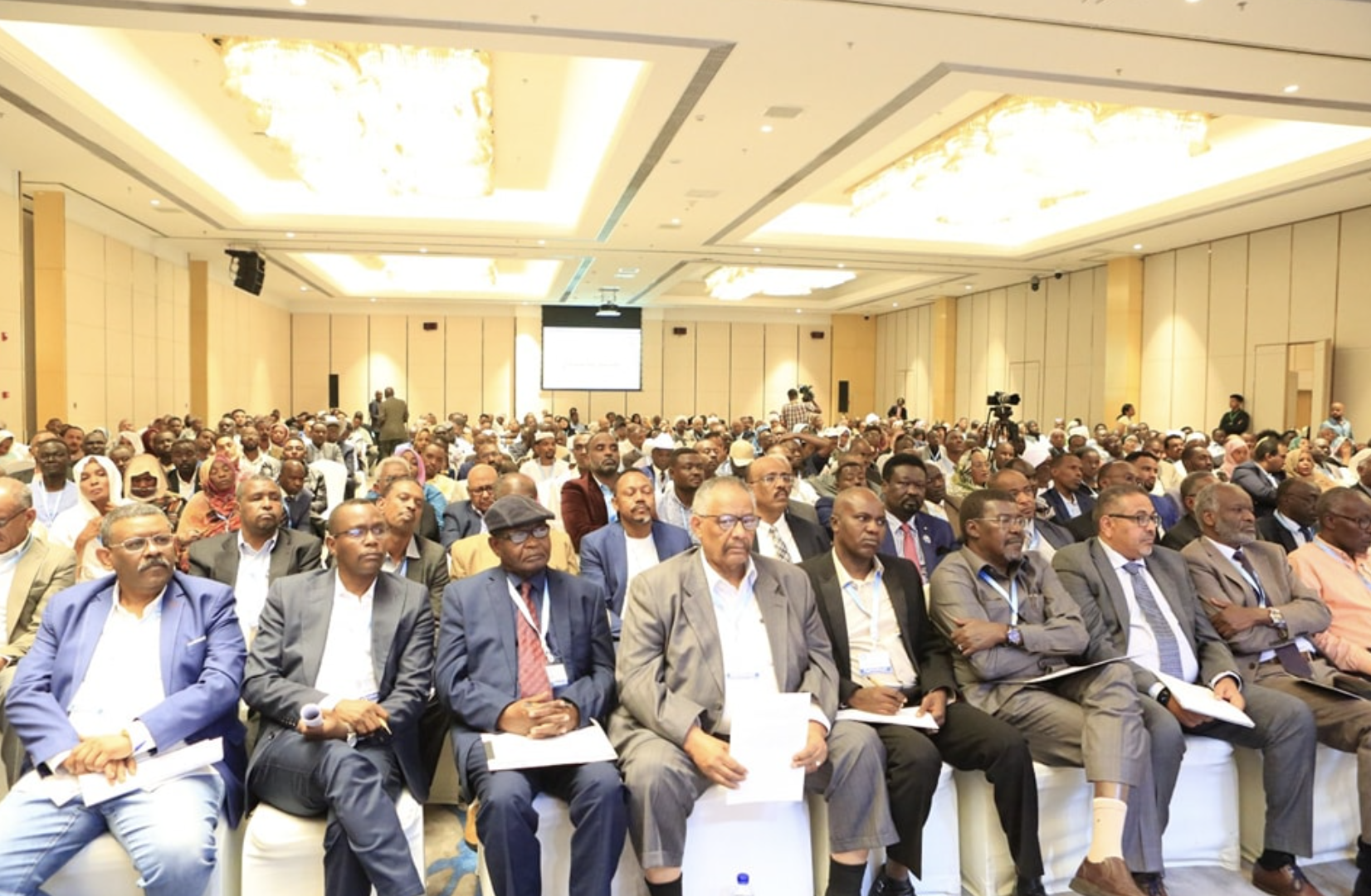
- First, in strategic communications, Taqaddum needs to engage more proactively with the media, respond swiftly to major events, and counter the Islamist propaganda that seeks to discredit advocates for ending the war and restoring democracy. Reflecting current weaknesses, Taqaddum has not widely disseminated to the public and diplomats the strategic policy documents adopted by the May conference, most importantly the coalition’s vision of how to end the war.
- Second, Taqaddum must maintain a coherent diplomatic strategy, reaching out proactively to all regional and international actors involved in the Sudan crisis. In this regard, Taqaddum has yet to fully deploy the great asset that former Prime Minister Hamdok represents. Hamdok and qualified surrogates have to proactively reach out to member states of the UN Security Council and the AU’s Peace and security Council, as well as to senior officials in the international humanitarian agencies. It remains to be seen how the coalition will engage with an AU-sponsored intra-Sudanese dialogue to be organised next month. The AU is reportedly looking to include all parties, including the former ruling National Congress Party, a step that Taqaddum has opposed.
- Lastly, Taqaddum’s humanitarian committee should be more visible and vocal on the frontlines of the humanitarian crisis affecting millions of internally displaced Sudanese and refugees.
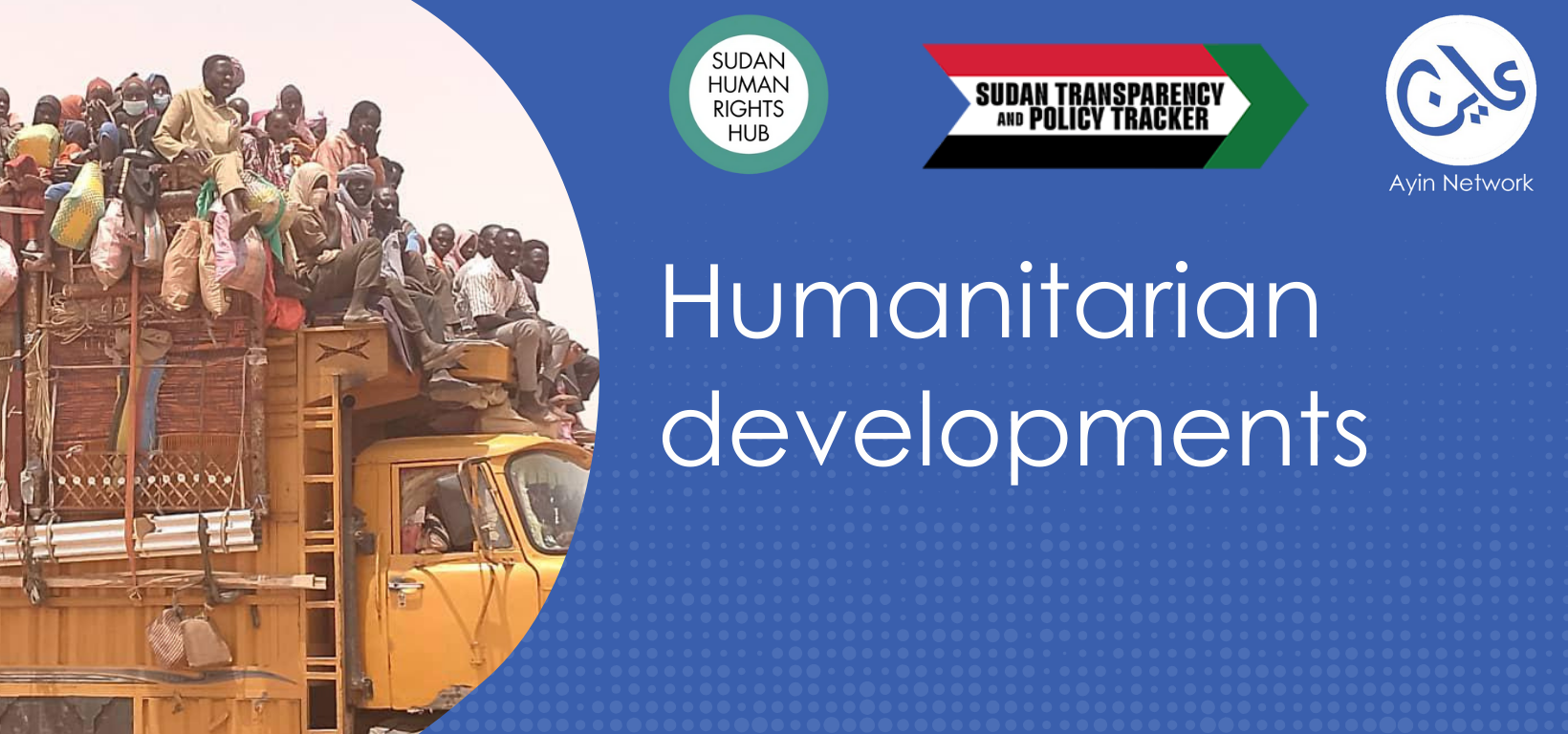 2. Humanitarian issues: The risk of devastating famine
2. Humanitarian issues: The risk of devastating famine
The humanitarian situation in Sudan is continuing to worsen. According to the Director of Operations and Advocacy, UN Office for the Coordination of Humanitarian Affairs, almost five million people are currently facing emergency levels of food insecurity (IPC level 4), most of them in conflict areas. Over two million of these are at risk of slipping into catastrophic levels of food insecurity in the next few weeks. An estimated 3.7 million children are already affected by acute malnutrition, according to the World Food Program. FEWSNET reports that food resources in El Fasher are becoming scarcer and that between March and May, cereal prices rose by 15–25% in the city, with non-cereal food prices rising by 25–70 percent.
An analysis by Clingendael in May 2024 estimated that the death toll from the coming famine could reach 2.5 million, assuming a model in which community support systems like communal kitchens continue to function.
Against the backdrop of this devastating humanitarian picture, response remains incredibly problematic. The Emergency Response Rooms that are running communal kitchens in Khartoum to respond to hunger are facing funding shortfalls and security threats. Many have been forced to cut back their services to as little as one meal per week.
Both fighting and bureaucratic restrictions have impeded access. A number of permits relating to the Tine crossing have been refused, and access to the most direct routes is a concern, especially as the rainy season approaches, which is feared to make some crossings, particularly Tina, impassible. The Security Council, in its recent resolution on El Fasher, specifically called for the reopening of the Adré border point. On the positive side, the government has reportedly been more cooperative in recent weeks, increasing the percentage of movements and visas that have been approved. However, border openings remain a serious concern.
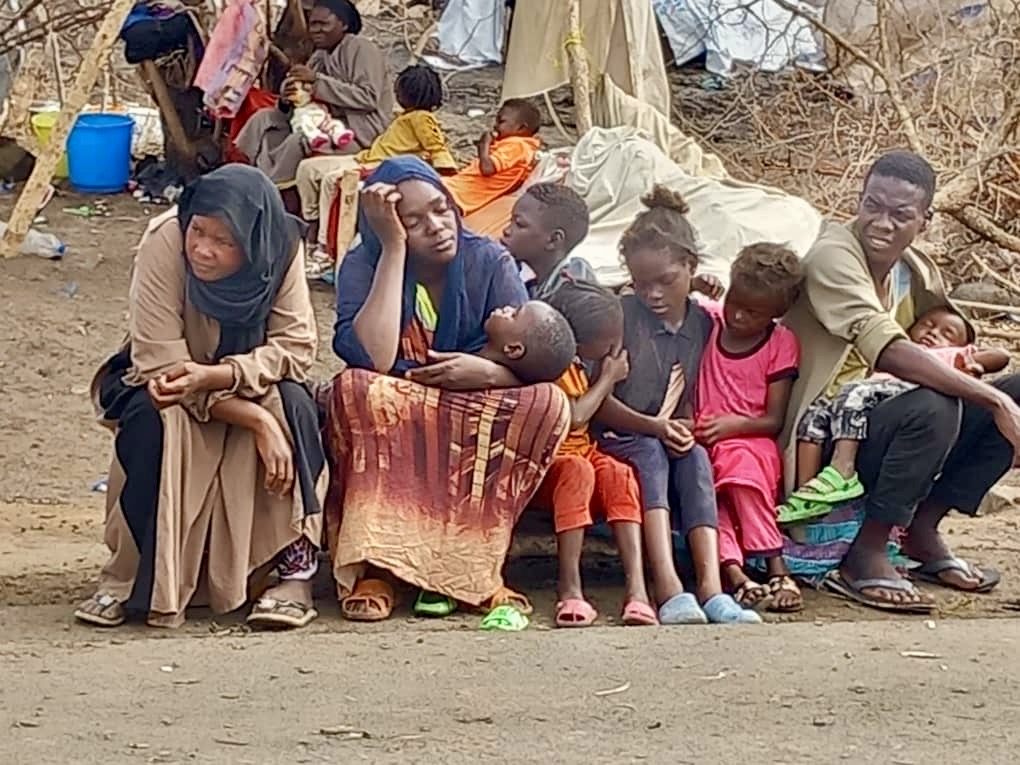
And Sudanese are also facing increasingly difficult conditions in exile. In Ethiopia, Sudanese refugees in Awlala and Komar camps are facing renewed violence between shifta gangs and Ethiopian police. They also face inadequate aid, and some have been robbed, threatened, or assaulted. In June 2024, Amnesty International released a report that documents unlawful deportations of Sudanese refugees from Egypt.
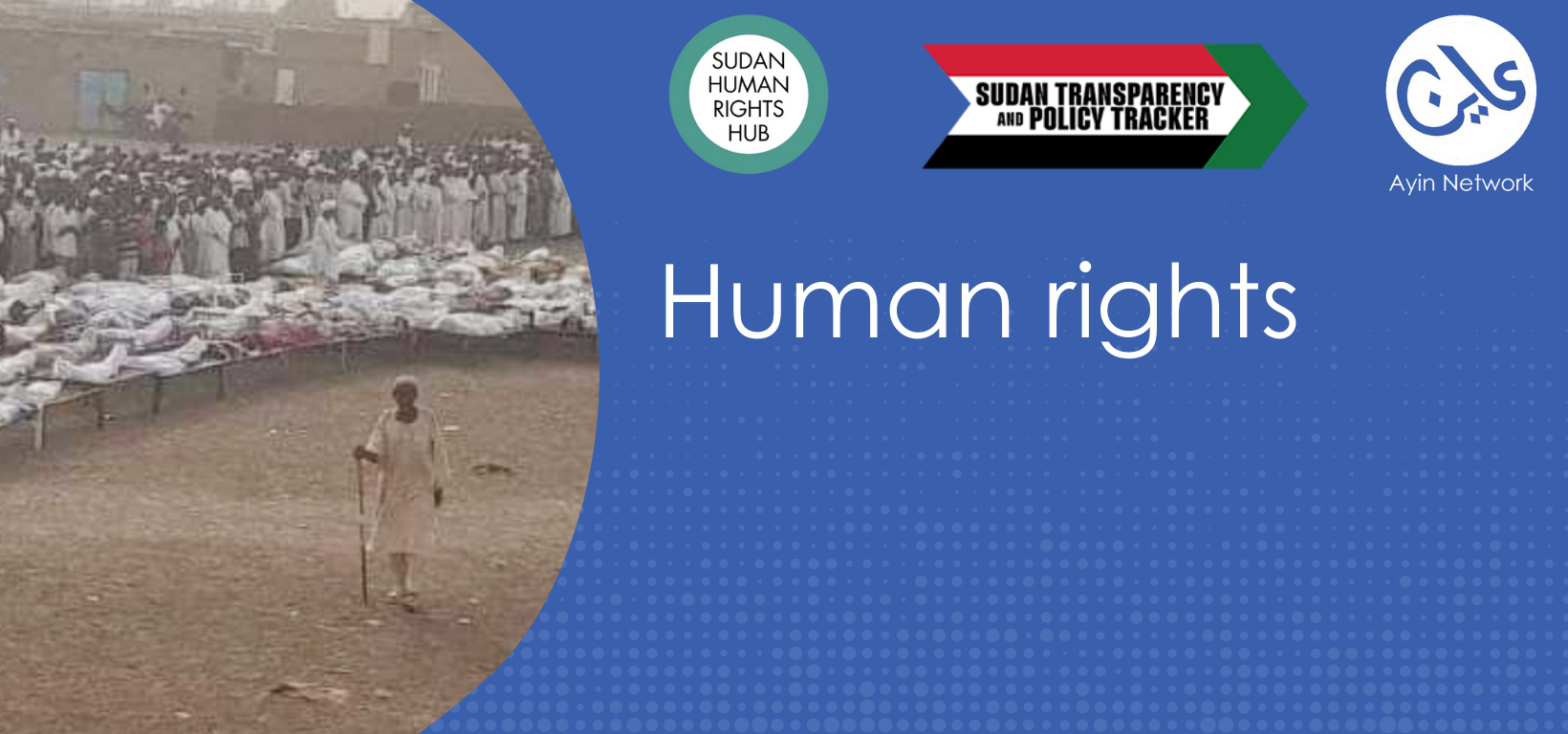 3. Human rights: Both RSF and SAF target civilians in their areas
3. Human rights: Both RSF and SAF target civilians in their areas
The SAF and the RSF, along with their allied factions, are in a race to the bottom when it comes to disregarding their obligations under the laws of war.
The RSF has attacked and massacred civilians and freshly recruited members of Popular Resistance units formed by such recruiters in various villages and small towns in Jazeera, justifying such killings as legitimate military action against imminent threats to its forces, such as what happened in Wad al Noura village in Jazeera State, where the RSF massacred scores of civilians. In response to the outcry by resistance committees and democracy actors, the RSF claimed the attack was a preemptive military response against the army, new Popular Resistance recruits, and a Jihadist brigade’s camps in the vicinity of the village. Similar incidents occurred in Al Babiker, where seven civilians were killed and widespread looting was carried out and in Asir, where 18 were reportedly killed.
In mid-June, prominent Islamist El-Nagi Abdall was seen in a video aired by the Jihadist TV channel Taiba, which broadcasts from Turkey, urging new recruits, allegedly of the Islamist al Bara Brigade in an unnamed location in the Manaqil area, to arrest and slaughter RSF prisoners without mercy, comparing them to sacrificial sheep for Eid al Adha.
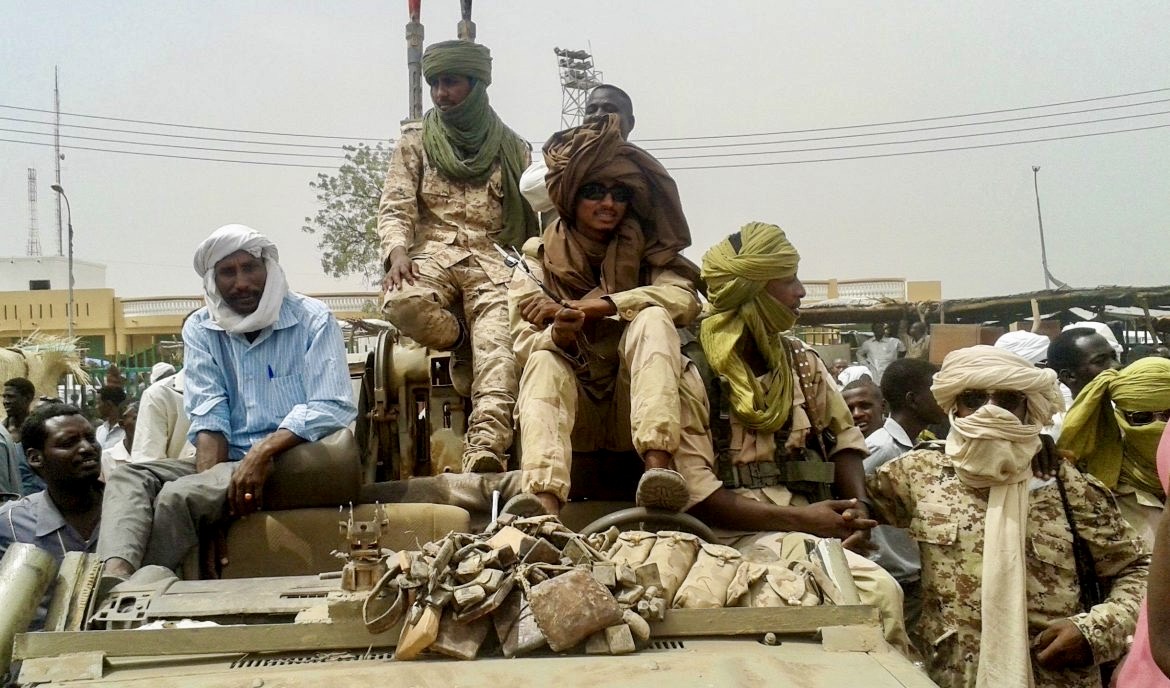
In an area that the SAF completely controlled on June 19, SAF and Popular Resistance recruits massacred over fifty residents of Village 32 before setting the village ablaze. An association of migrant workers in Jazeera State reported this incident, and various media reports corroborated it. The victims, Tama and Bergo tribesmen, were descendants of migrant agricultural workers from western Sudan who had lived in the area for generations.
The independent Sudan Doctors Association and Al-Hassahissa Resistance Committees have denounced the assassination on June 28 of the town’s prominent physician and director of its hospital, Yahya Mohamed Abdelrahim. The attack took place in front of his wife and children. The RSF has failed to date to investigate any of the mass or individual killings committed by its forces.
On June 27, the SAF killed three captured RSF scouts. Videos of the incidents confirm that the men were taken into custody before they were killed. Their bodies were subsequently mutilated and dumped into a canal.
The SAF has failed to investigate multiple incidents involving fighters in its uniforms beheading individuals suspected of being RSF members or supporters. One video shows the director of the General Intelligence Services in North Kordofan, Al Awad Mohamed while soldiers behead two RSF fighters in his presence, and another video shows him directing fighters and volunteers to behead RSF prisoners.
Both sides have developed a habit of posting video selfies on social media, showing them executing unarmed fighters who are either rendered hors de combat or captured.
In SAF-controlled River Nile and Gedaref states, governors have repeatedly urged security agencies and citizens to monitor such migrants, fearing they could be RSF sleeper cells. This has led to officially endorsed policies of “regional profiling,” with numerous Westerners in SAF-controlled states being detained, ill-treated, or disappeared based on flimsy suspicions of association with the enemy.
The frequent recurrence of these incidents highlights the inability or unwillingness of the senior commands in both the SAF and the RSF to ensure their forces adhere to international humanitarian law. These commanders must be held accountable for driving their country towards widespread mass killings across Sudan.
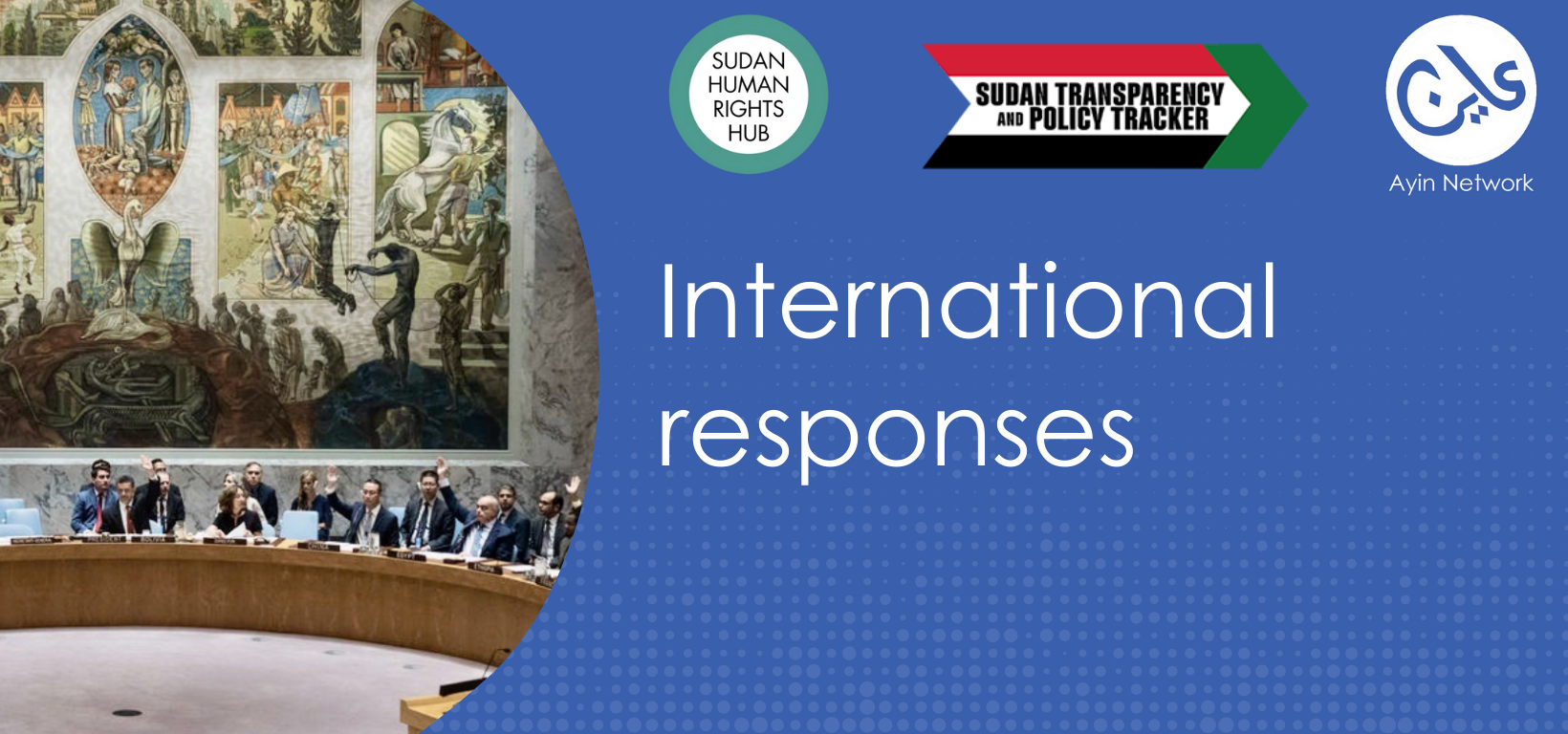 5. International responses: UNSC Resolution, new sanctions and a ceasefire push
5. International responses: UNSC Resolution, new sanctions and a ceasefire push
UN Security Council Resolution passes resolution calling on RSF to end its siege of El Fasher
On June 13, 2024, the UN Security Council adopted Resolution 2736 expressing “deep concern” over the fighting in El Fasher and demanding that the RSF end their siege of El Fasher. It also called for the re-opening of the Adré border crossing, which had been obstructed by the lack of SAF permission. And it reminds member states of the need to respect previous arms embargoes on Sudan.
Activists who are generally pleased to see engagement with the crisis have welcomed the resolution, but they view it as a relatively weak action that came too late in the game. Cameron Hudson, senior fellow in the Africa Program at the Center for Strategic and International Studies (CSIS) mentioned, “I would view this resolution more as an opening salvo than a game changer.” More needs to be done to push for the protection of the civilians in El Fasher who face the catastrophic consequences of the conflict.
In addition, the African Union Peace and Security Council issued a communiqué on June 21 setting up a PSC Ad-hoc Presidential Committee to facilitate negotiations as soon as possible, creating a framework for imposing sanctions on external actors interfering in the conflict, and asking for options related to civilian protection. The AU has also indicated an intention to convene an extraordinary session on Sudan.
The US and EU impose a new round of sanctions
On June 6th, 2024, the US enacted sanctions on six UAE-registered business entities documented to be supporting RSF’s war effort – Al Jil Alqadem General Trading L.L.C., Al Zumoroud and Al Yaqoot Gold and Jewellers Trading L.L.C, Capital Tap General Trading L.L.C., Capital Tap Holding L.L.C., Capital Tap Management and Consultancies L.L.C., Creative Python L.L.C., and Horizon Advanced Solutions General Trading – Sole Proprietorship L.L.C. These six entities are believed to be either RSF weapons / material procurement fronts, or involved in the trade of gold mined from RSF-controlled territories. According to the bank’s website, Al Jil Alqadem L.L.C., which owns 14.01% of the shares of the Al-Khaleej Bank in Sudan, is incorporated in the UAE. The UAE Ministry of Economics website on 31 March 2020 listed Aljil Alqadem’s Responsible Director as Abdelrahim Hamdan Daglu Mousa, the deputy commander of the RSF. At this time, the search turns up no information on the company.
On June 24, 2024, the EU imposed six new individuals, including Abdulrahman Juma Barakallah, an RSF commander in West Darfur, and El Tahir Mohamed El Awad Al Amin, commander of the Sudanese Air Forces.
Some believe Western sanctions, including June and December 2023 waves of US sanctions against SAF and RSF companies and January 2024 UK and EU sanctions on similar targets, should continue along a “turn off the taps” strategy targeting financing and procurement of the warring parties. However, for the RSF side at least, RSF sources appear to be unperturbed, citing robust sanctions inoculation strategies developed prior to the April 15th conflict and ongoing efforts by the UAE to help RSF evade sanctions outright. Sudanese civil society has also noted that a series of prominent individuals on the SAF side—e.g., the head of the sanctioned Defence Industrial Systems, Lt. Gen. Merghani Idriss—remain active in brokering weapons deals.
Other parts of Sudanese society have said that the US’s willingness to sanction individual RSF commanders (Second in Command Abdelrahim Dagalo and West Darfur Area Commander Abdul Rahman Juma in September 2023 over what happened in El Geneina; now-deceased Central Darfur Area Commander Ali Yacoub Jibril and Head of Operations Othman Muhammad Hamid Muhammad “Emaaliat” in May 2024 over the siege of El Fasher) as a more direct way to put pressure on these people while also going after their political goals is a plus. Notably, however, while the US has been willing to sanction certain SAF-aligned Islamist leaders, such as Secretary General of the Sudanese Islamic Movement Ali Karti and security figures Salah Gosh and Muhammad Atta, it has yet to target leaders within the SAF itself. Some have criticised this approach as appearing too lenient on SAF as a warring party.
SAF and RSF sources appear to be well aware of continued sanctions discussions inside the US and Western governments, including those linked to restrictions and obstructions against humanitarian actors. Promised sanctions, when enacted, may constitute a critical point of leverage in ensuring compliance with humanitarian norms and principles as the conflict continues.
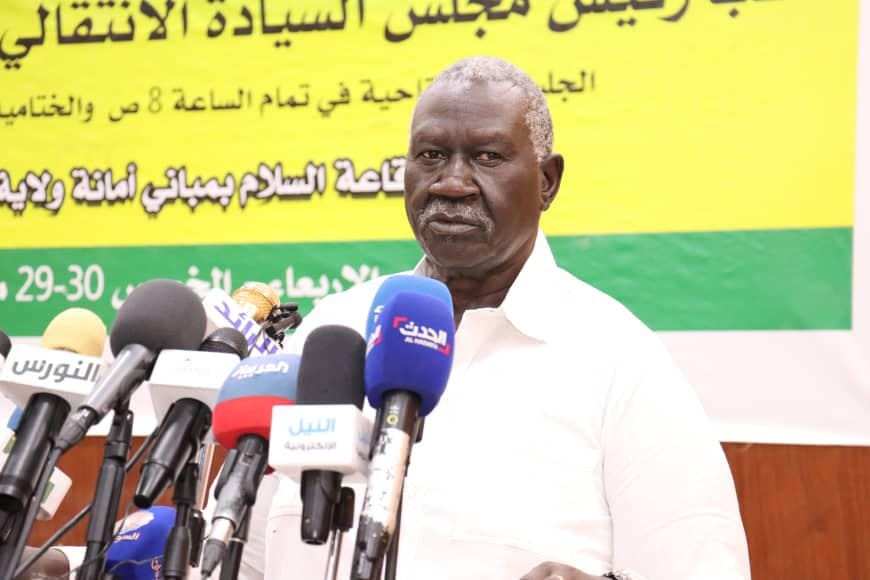
International efforts to broker a ceasefire remain stalled
The international community continues its attempts to bring SAF and RSF to ceasefire talks, as demonstrated via the continuation of private backchannels, such as the January 2024 Manama format, and requests to re-convene of the public Jeddah platform. However, there have yet to be indications of a breakthrough. In mid-June 2024, US Special Envoy Tom Perriello expressed a timeline of “three or four weeks to create the conditions for a peace agreement,” likely hinting at difficulties for international mediators to de-escalate fighting and/or fragmentation within either warring party. Special Envoy Perriello also noted SAF’s continued obstruction of the talks and expressed concerns about RSF’s failure to negotiate in good faith, pointing towards the latter’s inability to robustly deliver upon conditions promised in past rounds of talks.
Although the West and regional allies have attempted to work with SAF second-in-command Shams Al Deen Kabbashi to coalesce ceasefire talks over the past nine months, other segments of SAF leadership remain unconvinced. This was prominently seen in the SAF’s criticism of a May 2024 phone call between US Secretary of State Antony Blinken and Gen. Burhan, later expressed via a bombastic speech by SAF Sovereignty Council Vice President Malik Agar. The SAF third in command, Yasser al-Atta, also gave an interview on al-Hadath Channel in late May explaining reasons for SAF’s unwillingness to come to talks, noting broad-based support among the Sudanese public, which allegedly ranges from the Islamist al-Bara bin Malik battalion to the post-October 2021 coup revolutionary Ghadiboon group, for the SAF’s war effort. Atta also stated SAF’s willingness to accommodate actors such as Russia in security arrangements for presence on the Red Sea, suggesting endorsement for the new Russian rapprochement and arms deliveries to SAF, while condemning France as an RSF ally that has urged for the capture of El Fasher in an unaired segment of the interview.
To some extent, SAF’s recalcitrance towards talks appears genuinely bound to the demands of its Sudanese civilian constituents. This especially relates to SAF’s pre-condition for RSF to evacuate civilian homes, which RSF has been unable to deliver to date, retorting that both sides should implement this measure. SAF has also taken aim at regional actors’, particularly the UAE’s, material support to the RSF delivered via supply points based in Sudan’s neighbouring countries. The recent increase in SAF’s own receipt of weaponry and other support from actors such as Russia and Iran, however, suggests SAF leadership maintains aspirations to continue the war regardless. International mediators have repeatedly disagreed with the warring parties’ calculus that there can be a full military solution to Sudan’s conflict.
RSF and UAE, its regional supporters, remain ostensibly committed to discussing a political solution, although they appear to be privately frustrated with the inability to move forward with a ceasefire platform. The force has hinted at plans to expand the geographic scope of fighting to locations such as northern Sudan should the SAF continue to obstruct talks, while further deploying long-range drone strikes into areas deep within SAF-controlled territory as a pressure tactic. The continuation of the El Fasher siege, paired with escalating RSF internal discontent and command and control problems, severely undercut the political credibility of RSF leadership and their perceived ability to deliver upon any potential ceasefire agreement.



